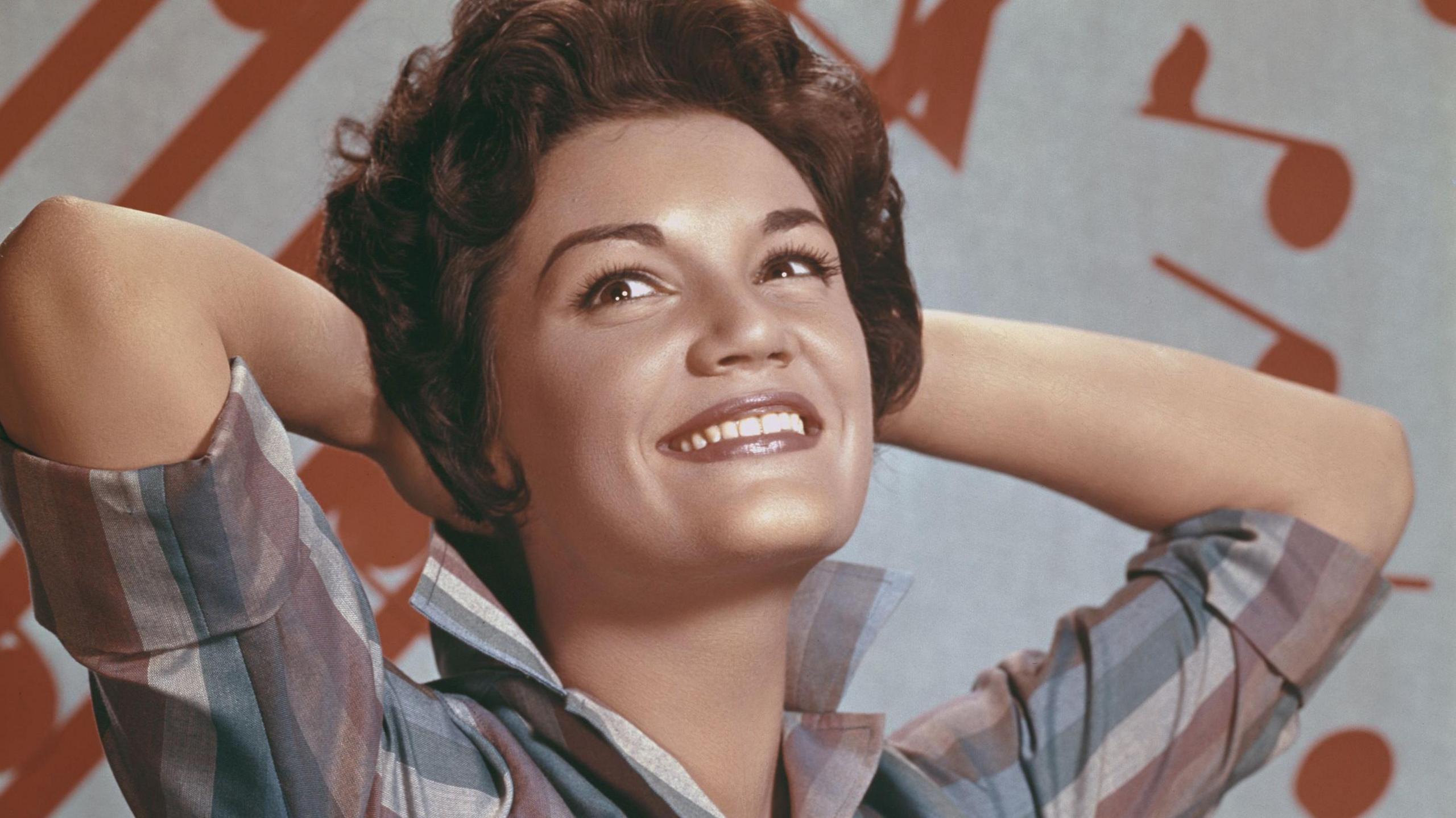Connie Francis (1937–2025): A Voice That Echoed Across Generations
London: It’s rare to find an artist whose voice could both break your heart and lift your spirit. Connie Francis was one of those rare voices. With her passing on July 16, 2025, at the age of 87, the world didn’t just lose a singer—it lost a symbol of a musical era defined by elegance, emotion, and extraordinary talent.
Born Concetta Rosa Maria Franconero in Newark, New Jersey, in 1937, Francis wasn’t just destined for stardom—she carved her own path with determination, heartbreak, and a resilience that often mirrored the lyrics of her own songs. The little girl with an accordion in Newark’s Ironbound neighborhood would grow to become a chart-topping sensation, a cinematic darling, and a voice that comforted millions across the globe.
A Meteoric Rise Born from Old Standards
Connie’s story is one of second chances. Early failures in the studio nearly led her to give up music altogether. Then came “Who’s Sorry Now?”—a 1920s standard that her father urged her to record. Initially reluctant, Francis eventually gave in, and the song became her breakthrough in 1958. It wasn’t just a hit—it was a statement. Suddenly, a young woman with an old tune had a modern voice that spoke to teenagers and parents alike.
This wasn’t a one-hit wonder. Hits like “My Happiness,” “Lipstick on Your Collar,” and “Stupid Cupid” quickly followed, showcasing her ability to switch from soulful ballads to bouncy pop numbers with ease. She wasn’t boxed in by genre or language. Connie sang in Italian, Spanish, Yiddish, German, and even Japanese—always with feeling, always with authenticity.
The Global Girl Next Door
In an era before global pop stars were commonplace, Connie Francis was a household name not just in the United States but around the world. Whether it was a tearjerking ballad in Yiddish or an Italian folk tune reimagined for the stage, she made it hers. Albums like Connie Francis Sings Italian Favorites weren’t niche—they were beloved, especially by diaspora communities longing for a link to home.
Her global appeal wasn’t limited to records. In the early ’60s, she lit up the silver screen in movies like Where the Boys Are—a coming-of-age film that not only launched a cultural moment but gave her one of her most iconic songs. Teenagers fell in love with spring break, and adults couldn’t help but notice the charm of this girl-next-door-turned-Hollywood star.
Behind the Curtain: A Life of Struggles
But the life behind the spotlight was filled with shadows. In 1967, a nasal surgery gone wrong nearly destroyed her voice—her most valuable instrument. Then, in 1974, Francis endured a horrific assault in a Long Island hotel room, leading to a long, painful retreat from public life. Diagnosed with bipolar disorder and battling the trauma of the attack, she disappeared from the spotlight for years.
Yet, Francis never stayed down for long. Her return in the ’80s, with powerful performances in Las Vegas and a searing autobiography Who’s Sorry Now?, wasn’t just a comeback—it was a reclamation. Singing in the very hotel where she was once attacked, she showed that courage could coexist with vulnerability.

Tragedy struck again with the murder of her brother George in 1981, but Francis channeled her grief into advocacy, speaking out about mental health and women’s safety—long before such conversations became mainstream.
A Timeless Voice in a Changing World
Even as musical tastes evolved, Francis never faded. Her songs became staples of retro playlists, and her influence could be felt in artists from Barbra Streisand to Celine Dion. In a full-circle moment, 2025 saw her song “Pretty Little Baby” go viral on TikTok, soundtracking videos for a generation who hadn’t even been born when Francis last performed.
Though her last concert came in 2018, she remained active in fan circles and was often seen at charity events, still the warm-hearted Jersey girl who knew the power of a good melody and an honest lyric.
Remembering the Woman Behind the Hits
Francis was married four times and adopted a son, Joseph Jr., who survives her. Her personal life, marked by fleeting romances and deep scars, never overshadowed her deep love for music or her fierce pride in her Italian heritage. In 2019, she was honored with the title of Cavaliere by the Italian Republic—a testament to her cultural impact on both sides of the Atlantic.
Her final days were spent quietly in a Miami hospital, surrounded by close family. Though the cause of death was not officially disclosed, it followed a series of health setbacks, including a hip injury that had left her bedridden for months.
A Lasting Legacy
With over 200 million records sold, and as the first woman to top the Billboard Hot 100, Connie Francis didn’t just break barriers—she redefined what was possible for women in music. In a time when male crooners dominated the charts, she held her own, proving that strength and softness could live in the same voice.
Her music remains a time capsule of emotion—whether it’s the heartbreak of “Don’t Break the Heart That Loves You,” the youthful joy of “Vacation,” or the longing in “Where the Boys Are.” And through it all, Connie Francis remained true to who she was: a girl from Newark with a voice that could move the world.
In life and in music, Connie Francis gave us her heart—over and over again. And now, as we bid her farewell, her songs remain, echoing through time like the memory of a first love.









